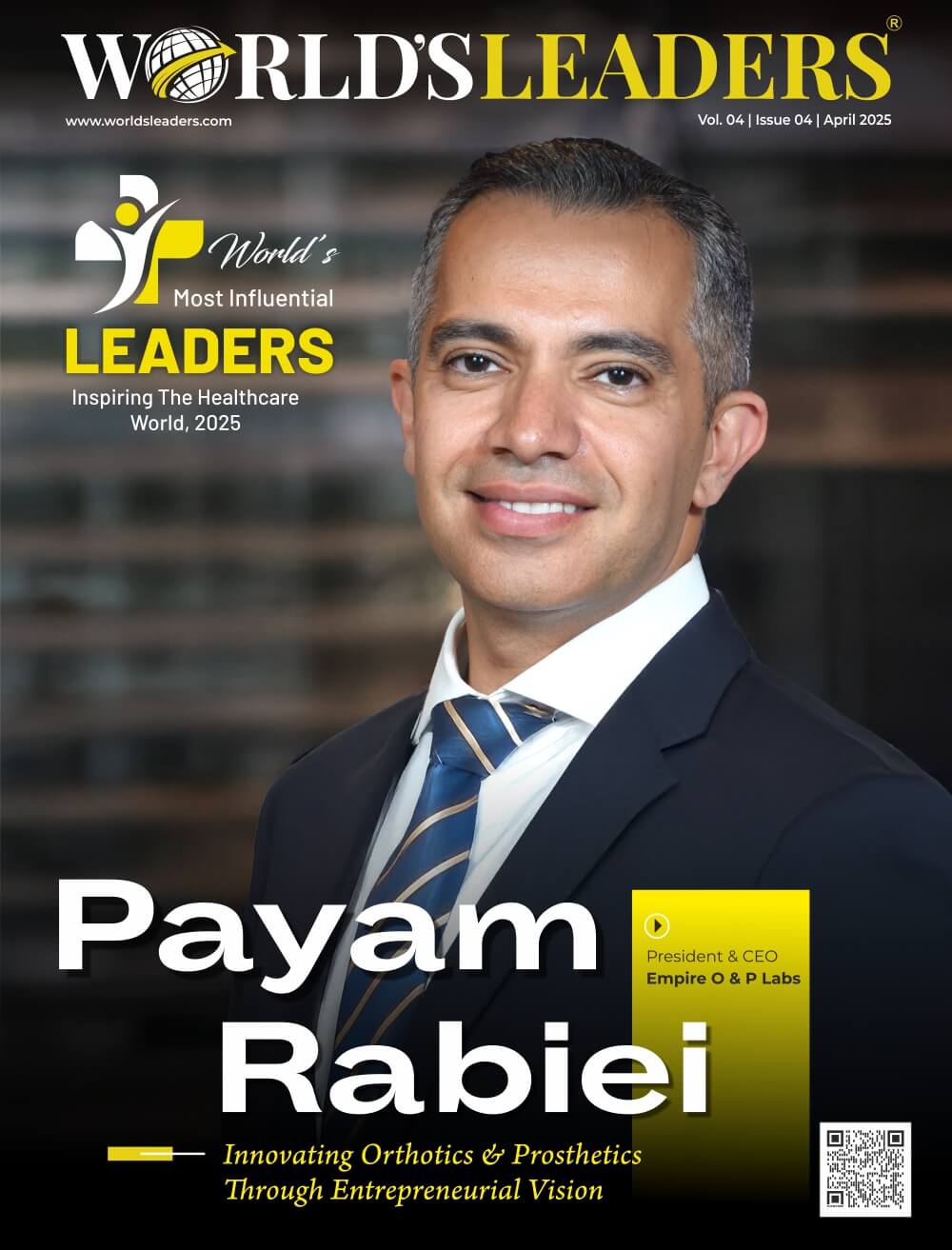In the relationship between a leader and their employees, integrity and trust go hand in hand. Employees rate leaders on their character and skills, and they equate integrity with kindness and having altruistic goals rather than self-interest. Leaders must develop scripts and put plans into place for responding to the frequently cited justifications for dubious behaviors in order to take values-driven action. Integrity in leadership is also a crucial component in resolving these conflicts of values. As the CEO of Kinetic Spark Consulting (KSC), Jen Du Plessis prioritizes integrity in both her personal and professional life. As a result, every decision she takes, whether professionally or personally, is guided by this decision-making process.
“When I’m dancing, I will make sure that I’m acting with integrity; that the dance will not diminish my integrity.” -says Jen.
Bringing KSC into Being
Jen Du Plessis worked in the mortgage industry for four decades as a processor, manager, underwriter, branch manager, district manager, regional manager, and national manager. She also had her own brokerage for nine years. For half her time in the industry, she was an originator. She also was a managing member of BNI (Business Network International), and that’s when she began expanding her coaching practice. Many people approached her and enquired about how she had accomplished so much. The concept was that, after being asked by multiple people, she realized there was a need. The questions made her realize that, in the long run, after 30 or so years in the mortgage loan business, it was time to branch out in order to have an even greater impact on people. That resulted in Kinetic Spark Consulting (KSC).
Kinetic stands for kinetic energy, which is the change of mass from sitting to movement. A spark plug is just that—a spark. You need a spark to get things rolling. Jen established KSC so she could coach Realtors first, independent of her mortgage company. And from there, the focus shifted to educating loan officers, C-suite executives, sales managers, and sales teams, which in turn paved the way for diversifying beyond the mortgage industry.
KSC’s Specialties
Kinetic Spark Consulting mentors residential mortgage loan officers, realtors, and investors to live their legacies while growing them. The high-level mentorship offered through her masterminds is one of KSC’s main services. There are also several coaching and mentorship programs available to clients who are making six figures and are feeling stuck moving up to seven figures, or who are making seven figures and are striving to reach eight figures.
Additionally, KSC publishes two podcasts. One is known as Mortgage Lending Mastery. With 3,000–7,000 downloads per week, it has been the longest-running podcast in the mortgage sector for the past ten years which helps mortgage loan officers, realtors and investor with sales mastery leadership and priority management. Additionally, they have a podcast called Success to Significance: Life after Breaking Through Glass Ceilings where they discuss the struggles and triumphs of those who have faced and overcame various types of glass ceilings in their lives and businesses.
Female Leader. No, A Leader!
Jen Du Plessis prefers to respond to questions about how she grows as a leader rather than as a female leader. She uses personal development daily to advance as a leader, participating in masterminds, reading, attending conferences, conducting conferences, coaching others, speaking on stages, and listening to podcasts.
Jen has a staunch belief in living your legacy while creating it. Playing with passion is possible when you work with purpose. She has two masterminds: Impact & Make Your Mark. She discovered that participating in and running masterminds helped her business five times over. She has dramatically grown more over the past four years than she had in the prior ten years combined.
She is setting the way for women as leaders, enabling others to stand tall. She accomplishes this by acting with integrity, one of her core values. She never intends to take any action that will diminish her credibility as a capable leader. She desires to serve as an inspiration to both men and women, she regards leadership as exhibiting a strong will, combined with flexibility.
Technology Trend
Jen believes that the technological revolution to simplify the loan application procedure has already begun. In today’s fast-paced environment, she thinks clients are looking for lenders who are transparent.
There will never be a time when a person can click a button to receive a mortgage and never interact with a human being. She doesn’t think technology will address the problem of clients understanding how mortgages work.
Jen thinks this isn’t the fault of the entrepreneurs, but rather of the consumer, who lacks financial literacy and knowledge of the purchasing process. She is presently engaged in a project that aims to impart financial literacy as well as demonstrate how it can be used to build financial wellness.
A Turning Point over Roadblocks
The most challenging time in Jen’s career, was then she felt unfulfilled, despite originating and closing $50 million annually, placing her in the top 1% of all originators nationally. She simply wanted to figure out how to close the same volume, keep her national position in the top 1%, yet work significantly fewer hours so she could spend more time with her family, and on herself. She explains when she started to change.
“The moment everything changed for me was the night I answered a client’s phone call while I was having dinner with my family. I went outside of the restaurant and began walking the all-too familiar “concrete balance beam”. During my conversation, I happened to look into the window of the restaurant, and I saw my family creating memories, laughing and enjoying their time together; however, I was not with them. “
She adds, “And in that moment, I knew that things had to change. I had to accelerate my thought process of how to crack this code? Over the course of the next two years or so, I perfected that process.”
Jen worked fewer than 40 hours each week to fund $102 million. Her goal was to maintain the number at $50 million but improve her standard of living. As a result, she had discovered something so great that it allowed her to have a successful business while still living a quality life.
Jen as a Voice for the Company
Jen is a visionary as the CEO of the KSC. She gives the business its vision, values, and voice. She travels the world delivering keynote addresses to all varieties of business owners, entrepreneurs, corporations, and teams on the topics of scaling, management, leadership, and relationship development for their company both internally and externally. She says the advice she shared is to start working ABOVE and BEYOND your business rather than working IN and ON it. This allowed her to retire from direct loan originator so that she was free to pursue other business options outside of lending, such as real estate investing, owning other firms in various industries, speaking and mentoring.
Jen enjoys taking the stage and telling her story in order to inspire people and spur them on to take action. She also serves as the producer and host of the streaming television program “Tell Me I Can’t,” which profiles individuals who have demonstrated exceptional resilience in their lives and have triumphed over the doubt and skepticism of others to achieve great strides.
When Jen is able to speak with a coaching or mentoring client and observe a breakthrough in their thought process, she believes that this is the happiest part of her daily schedule.
“My business mantra is mindset + methods = momentum. This gives me so much joy. “– says Jen.
Jen’s Success Attributes
In Jen’s opinion, one of the most important qualities of a good leader is self-awareness. Many people gain leadership positions through attrition, but once they are in them, they rarely focus on their own personal growth. Being a leader means being able to recognize the abilities, skills, and progress of others. According to Jen, each person has a unique personality, level of cognitive development, and level of maturity. As leaders, we must take this into account in order to encourage and enable each person to pursue their own personal progress.
Leaders frequently start rushing up the mountain only to find themselves at the summit by themselves. The members of their team are still waiting for instructions at the bottom. Jen advises that during the ascent to the top, it’s important to keep looking back to make sure that everyone is on board with the vision, feeling supported, receiving education and feedback, and being inspired to improve. She also stresses the importance of accepting responsibility as a key quality of an effective leader. She added that accountability, coupled with integrity, could be of major concern in the values sector as well.
For Aspiring Leaders
“Before you are a leader, success is all about growing yourself. When you become a leader, success is all about growing others. “ —Jack Welch
Jen has discovered that most people do not invest in their personal development as as a leader; choosing instead, to spend money on technology and the shiny object syndrome, sometimes known as SOS (“help! I need help!”). The younger generation will need to invest in their technical knowledge of all markets, including secondary markets, stock markets, mortgage-backed security markets, interest rates, federal funds, etc. They must be able to explain to customers trends in the financial world.
Jen thinks they also need to improve their sales abilities.
She describes, “We’ve been spoiled over the last 15 to 20 years because not much selling was needed. Now that rates have risen, I see many scrambling to quote a competitive rate, and then hope that the client loves the rate, rather than educating the consumer. “
The most important piece of advice from Jen is to avoid trying to discover a miracle solution to grow your business. Investing in oneself today will allow you to invest in other wealth-building tactics in the future. It entails joining a mastermind group—or several—listening to podcasts, attending summits, webinars, and conferences, and generally making an investment in your personal and professional growth.
She explained that, as leadership develops, you should learn how to manage and lead so that you can collaborate with others who have different personalities and developmental phases. She urges that a title does not automatically make someone a leader.
Written by Steve Sanchez.





